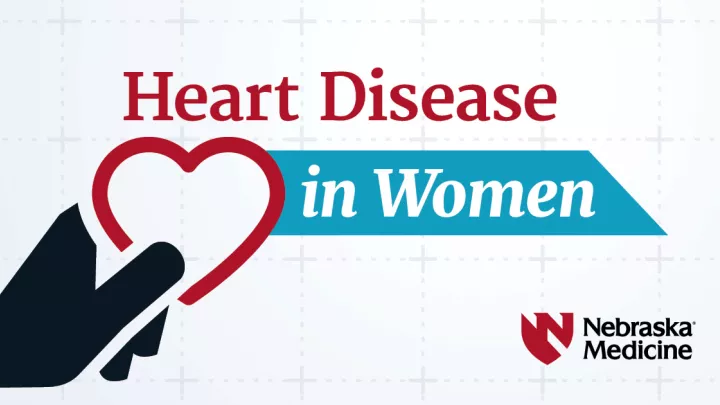Panic attacks vs. heart attacks: What's the difference?

It can be a scary experience. Your heart is racing, you are short of breath and your chest hurts. Is it a heart attack? A panic attack? The symptoms can be similar, making it confusing to tell the difference.
Specific symptoms may seem the same, but they result from different disease processes. "One involves a blocked artery that causes a heart attack and is life-threatening," explains Edward O'Leary, MD, Nebraska Medicine cardiologist. "The other is a perception of a life-threatening event. Both are very stressful, and while there are overlapping symptoms, how symptoms look and their outcomes are different."
Let's take a look at each condition, how they differ and what to do if you're unsure.
What happens during a panic attack
A panic attack is medically defined as mental and physical anxiety symptoms that can arise without a known cause. Approximately 5% of Americans will have one panic attack in their lifetime. They tend to affect the entire body, typically come on suddenly and will gradually escalate to a peak in about five minutes. They can last anywhere from a few minutes to several hours.
"A panic attack is an unhelpful activation of our fight vs. flight response," explains Jerry Walker, PhD, Nebraska Medicine psychologist. "It's unhelpful because, at that moment, there's no real danger or threat to our safety, but our mind and body have become convinced that there is. Activation of the fight vs. flight hormonal system cues our body to react quickly to danger by speeding blood and oxygen to our muscles. It diverts energy temporarily from other body processes such as digestion (hence the stomach discomfort), and causes our brain to focus on these bodily sensations and other potential threats."
Typical panic attack symptoms including physical anxiety symptoms, such as:
- Accelerated or pounding heartbeat
- Chest pain or tightness
- Shortness of breath
- Nausea or GI discomfort
- Sweating
- Trembling or shaking
These symptoms can be accompanied by mental anxiety symptoms as well. "These can include severe panic, a fear of dying, feeling detached from reality or from one's body, fear of losing control, feeling dizzy, lightheaded or faint," says Dr. Walker. "Panic attacks are experienced more than twice as much by women compared to men, and women tend to report more difficulty breathing during panic attacks."
What happens during a heart attack
In contrast to a panic attack, a heart attack occurs when blood flow to the heart muscle is blocked, and one or more parts of the heart are deprived of oxygen. Cellular injury occurs due to a lack of oxygen and blood, leading to heart muscle damage.
"For a heart attack, there can be a range of symptoms, but is often described as pressure and can be brought on and made worse by physical activity," says Mary Kisicki, BSN, RN, Chest Pain Clinical Program Coordinator. "For a panic attack, symptoms may occur at rest or with stress and are shorter-lived than with a heart attack."
With a heart attack, symptoms generally get worse over time and increase in intensity. Some experience symptoms that come on suddenly and are immediately severe. Symptoms typically last until treated.
Typical and atypical heart attack symptoms may include:
- Chest pain that can come and go on left, right or middle of chest
- Pressure
- Burning
- Radiation of pain to the jaw or arms
- Shortness of breath
- Excessive fatigue or weakness
- Nausea or vomiting
- Back pain
- Feeling of fullness
What it feels like
Some describe a feeling of burning, squeezing or aching. Generally, men and women experience symptoms differently. Males generally describe the classic "elephant on your chest" symptom. Women often present with vague symptoms and may feel extremely fatigued, dizzy or nauseous. They may experience upper back pain and mistake heart attack symptoms with heartburn or stomach issues. For women, if something just feels "off," it's important to get checked out.
What to do if you're unsure
If there's any question, head to the hospital and get checked out. "If you have a history of panic attacks, the symptoms persist and your normal treatment doesn't resolve it, or if heart attack symptoms do not go away, go to the hospital," says Dr. O'Leary. "Do not be embarrassed – we are here to sort that out. You are not wasting anyone's time."
Recognition and response are essential to early care. "Any time a person experiences chest pain or other atypical symptoms they cannot attribute to a specific cause, they should seek emergency care right away," says Kisicki. "Call 911 instead of driving yourself so that Emergency Medical Services (EMS) can start treatment on the way to the hospital."
If a heart attack is ruled out medically, but panic attack symptoms continue
Consider visiting your primary care doctor if:
- The panic attacks are beginning to interfere with your daily life or ability to function at work, school, home or in important relationships
- The fear or anxiety of future panic attacks negatively impacts any of the above areas
- You find you're actively avoiding doing certain things or going places for fear of having another panic attack
- You're interested in learning how to manage your panic attacks or panic-related anxiety better
"With treatment, you can learn how to recognize the signs of an oncoming panic attack, learn skills to de-escalate the panic and break the anxiety cycle," says Dr. Walker. "While treatment can't necessarily prevent panic attacks from happening, they can improve your ability to manage the severity, frequency and duration of these attacks so that they're not as disruptive or distressful."
If you think you are experiencing a panic attack, Dr. Walker has some helpful advice. "Self-talk is important when having a panic attack. Sometimes it's helpful to remind yourself – out loud – something like ‘I'm not dying. I'm having a panic attack. It's uncomfortable, but I'm OK. This will pass.' Keeping a level head can be difficult when anxiety tries to hijack your thinking, but the more we can talk ourselves through it, the easier it can be to feel like you're in control."
If you suffer from panic attacks and are interested in seeking treatment, call the free Behavioral Health Connection at 402.836.9292 to get connected with a local mental health agency.







